Step Balancing on a Stair
In spiral stair, the steps are automatically balanced. There are three methods as balancing method. One of these three methods is selected. These are Constant, Linear and Nonlinear balancing methods. The compensations are made according to the chosen method and are instantly reflected in the 2D and 3D views of the stair.
At the beginning and end, the desired number of steps is kept straight, keeping it out of balance.
Location of Balancing Settings
You can access the balancing settings from the stair edit dialog.
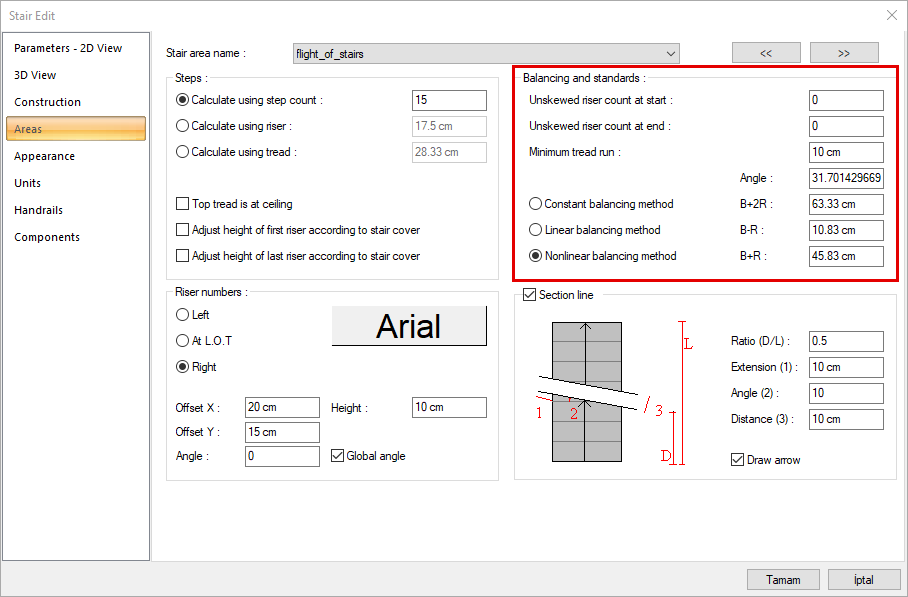
Specifications |
|---|
Unskewed riser count at start  The step where the balancing will begin on the rotating stairs is determined here. For example; If 2 is entered, no offset is made for the two initial digits. From the third step, balancing (rotating steps) is started. |
Unskewed riser count at end  It is the parameter that determines at which step the balancing (rotating steps) will end in rotating stairs. For example; If 2 is entered, balancing ends at the third from the last step. No balancing is made for the last two digits. |
Minimum tread run  While balancing, how much the minimum step width can be is entered in this box. It can be intervened if the nonlinear balancing method is chosen. User cannot interfere when fixed and linear balancing methods are selected. |
Angle  It is the slope of the stair. It is automatically calculated and written in this box. The user cannot intervene. Stair flight length and height vary depending on the step and the dock. |
Constant balancing method B+2R  Refers to the stride length. Here B represents the step width, R stands for the height of the riser. Automatically changes when B or R changes. |
Linear balancing method B-R  Refers to comfort. B is the step width, R is the riser height. Automatically changes when B or R changes. |
Nonlinear balancing method B+R  Refers to security. B is the step width, R is the riser height. Automatically changes when B or R changes. |
Balancing Methods
Constant balancing method B+2R |
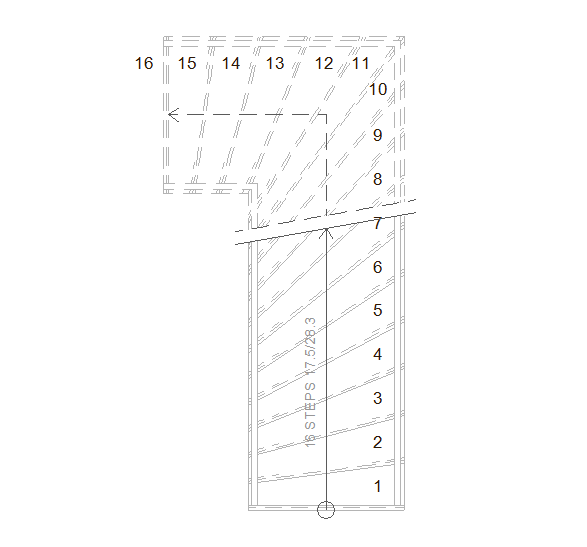 |
Linear balancing method B-R |
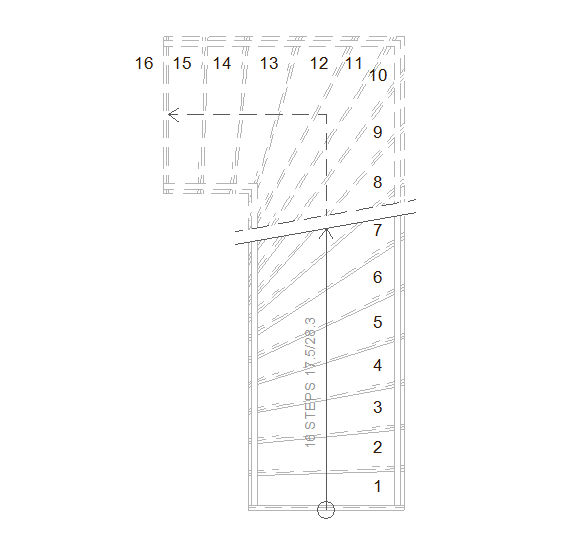 |
Nonlinear balancing method B+R |
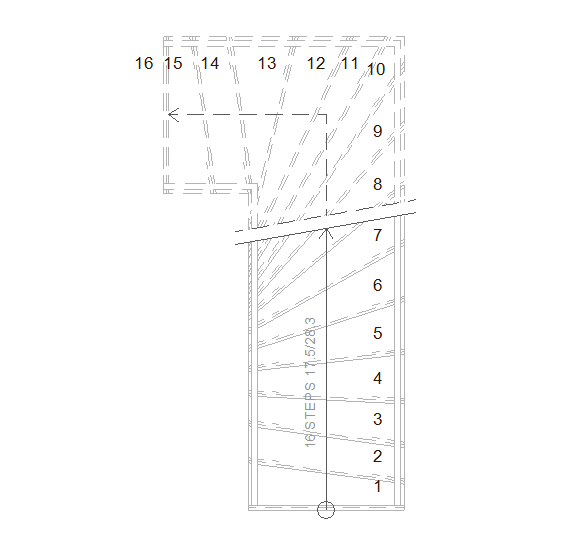 |
Examples for Balancing
When all the steps are balanced |
 |
When unskewed riser count at start is 6 |
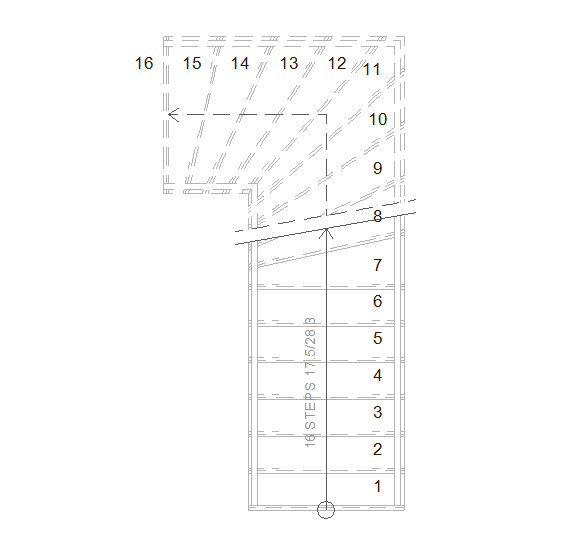 |
When unskewed riser count at end is 1 |
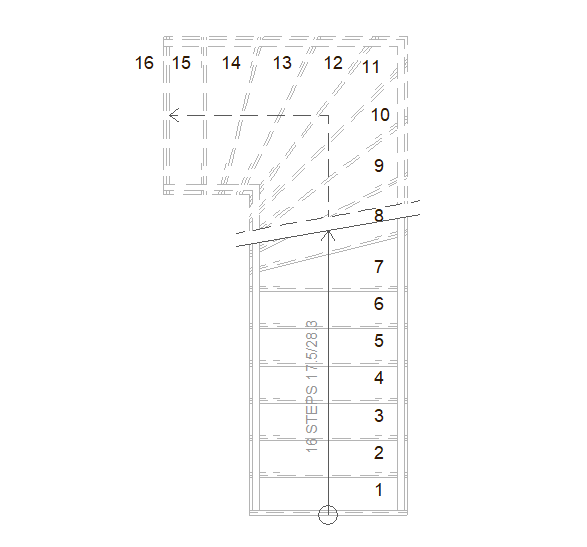 |
Next Topic
